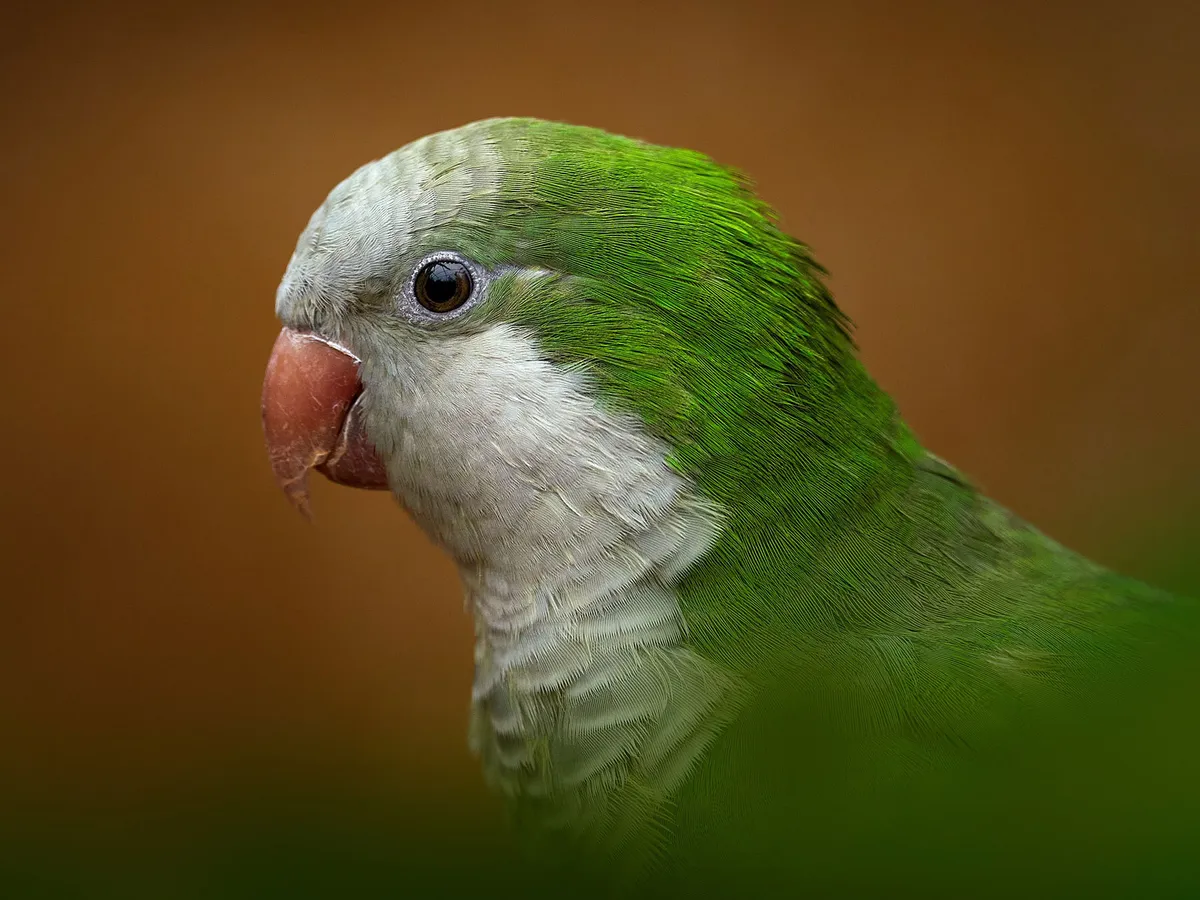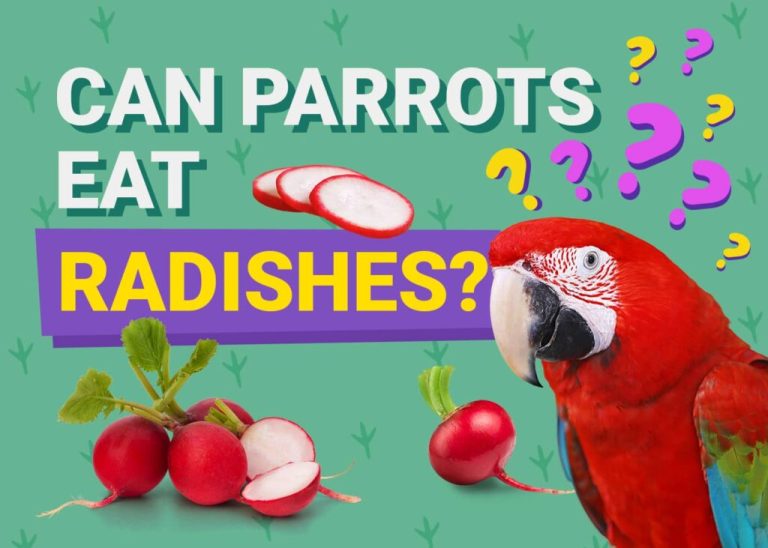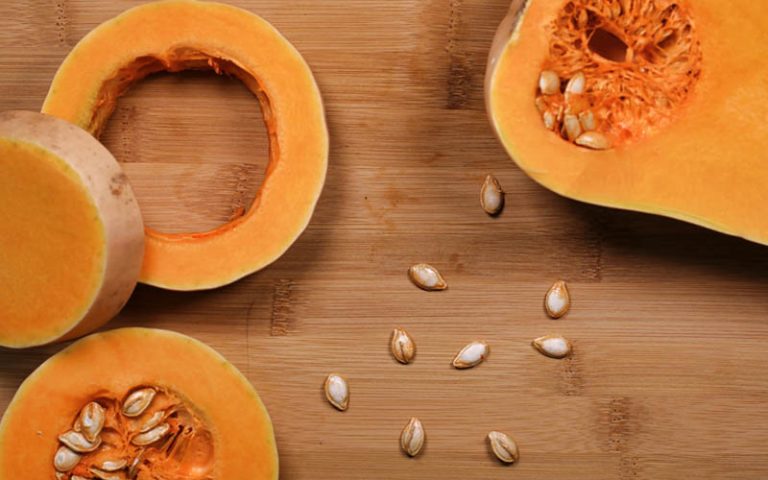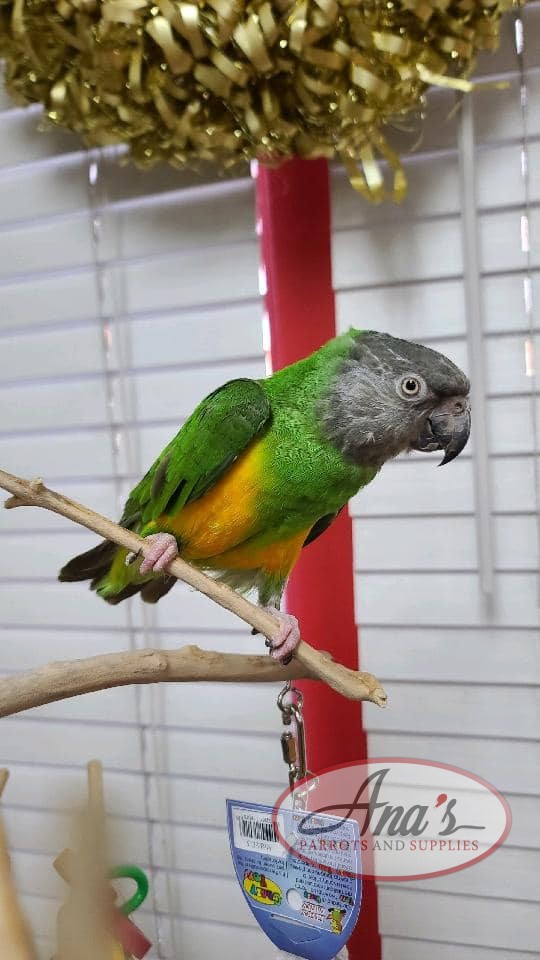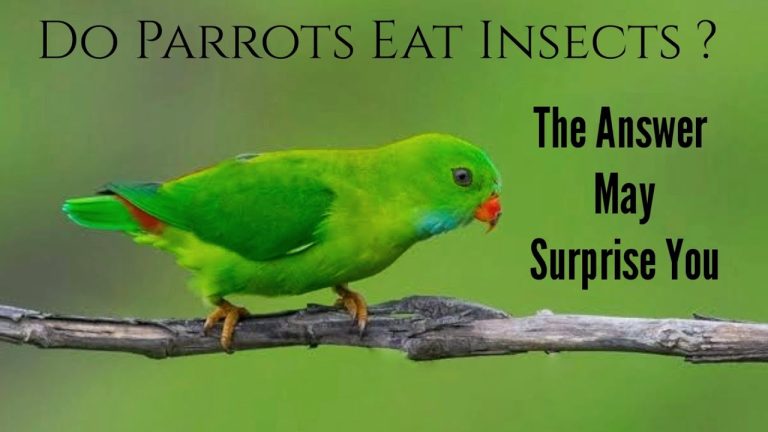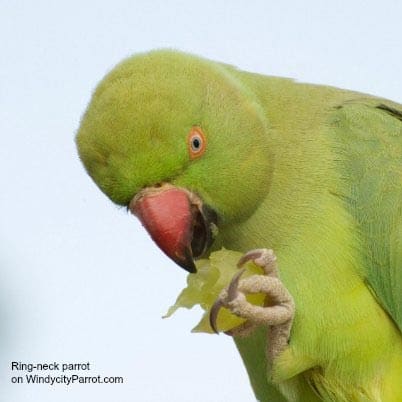How Long Does a Quaker Parrot Live?
Quaker parrots typically live between 15 to 30 years, depending on their care and environment. With proper nutrition and attention, they can thrive well into their twenties.
Quaker parrots, also known as monk parakeets, are popular pets due to their charming personalities and vocal abilities. These small, intelligent birds form strong bonds with their owners and can be quite playful. Understanding their lifespan is essential for potential owners, as it reflects a long-term commitment.
Factors such as diet, social interaction, and living conditions significantly influence their longevity. By providing a nurturing environment and adequate healthcare, owners can help ensure their feathered friends enjoy a fulfilling and healthy life. This knowledge empowers current and prospective bird owners to make informed decisions about their care.
Quaker Parrot Lifespan
Quaker parrots, also known as monk parakeets, are lively and social birds. Understanding their lifespan is crucial for potential owners. Knowing how long these charming birds live helps in planning their care and environment.
Factors Influencing Lifespan
Several factors affect the lifespan of Quaker parrots. Key influences include:
- Diet: A balanced diet contributes to better health.
- Environment: A safe and stimulating habitat promotes longevity.
- Healthcare: Regular vet check-ups prevent diseases.
- Genetics: Some birds inherit traits that affect lifespan.
- Social Interaction: Regular interaction improves their mental well-being.
Average Lifespan In The Wild Vs. Captivity
The lifespan of Quaker parrots varies between wild and captive environments. Below is a comparison:
| Environment | Average Lifespan |
|---|---|
| Wild | 5 to 10 years |
| Captivity | 15 to 30 years |
In the wild, Quaker parrots face dangers like predators and diseases. In captivity, they enjoy better protection and healthcare. This difference significantly extends their lifespan.
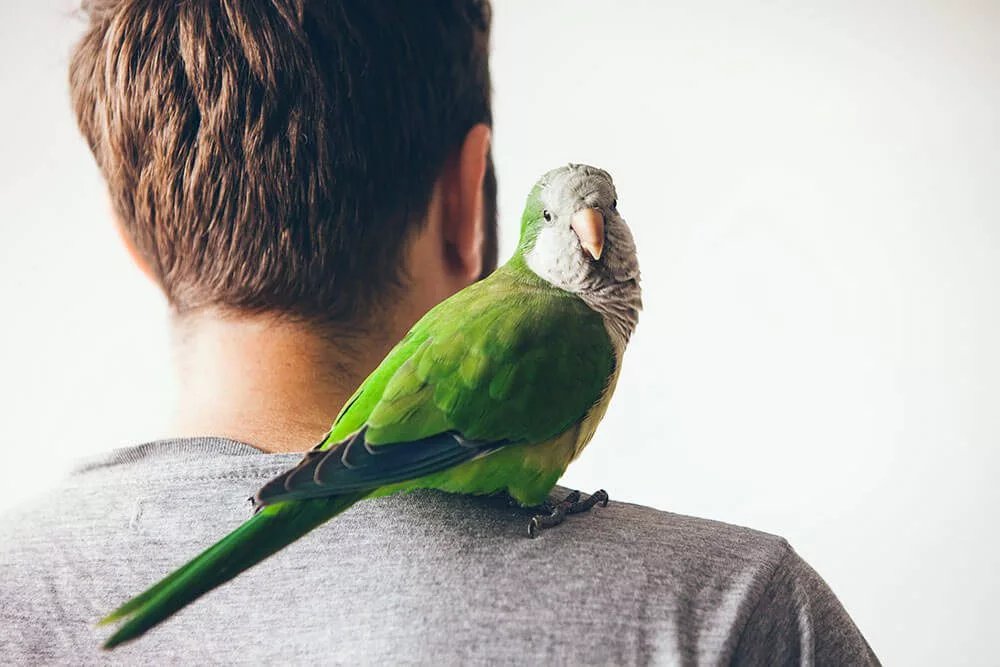
Credit: gregrichdvm.com
Genetic Makeup And Longevity
The genetic makeup of Quaker parrots plays a key role in their lifespan. Understanding how genetics influence longevity helps bird owners provide better care. The right environment and diet can also impact these birds’ health.
Role of Genetics
Genetics affect many aspects of a Quaker parrot’s life. Here are some important points to note:
- Inherited Traits: Lifespan can vary based on inherited traits.
- Health Conditions: Certain genetic conditions may reduce lifespan.
- Breeding Practices: Responsible breeding can enhance health.
- Genetic Diversity: A diverse gene pool leads to stronger birds.
Research Findings On Quaker Parrots
Research highlights various aspects of Quaker parrot longevity:
| Study Aspect | Findings |
|---|---|
| Average Lifespan | 15 to 20 years in captivity |
| Genetic Factors | Strong genetics lead to longer lives |
| Common Health Issues | Obesity, feather plucking, and respiratory problems |
| Impact of Environment | Stress-free environments enhance longevity |
Understanding these findings helps owners provide better care. Healthy genetics, proper diet, and a safe environment boost the lifespan of Quaker parrots. Owners can increase their birds’ chances of living longer and healthier lives.
Nutrition’s Impact On Lifespan
Nutrition plays a key role in the lifespan of a Quaker parrot. A balanced diet promotes health and vitality. Poor nutrition can lead to diseases and shorten their life.
Essential Diet Components
Quaker parrots need a variety of foods for optimal health. The essential components include:
- Pellets: High-quality pellets provide essential nutrients.
- Fresh Fruits: Apples, bananas, and berries offer vitamins.
- Vegetables: Leafy greens and carrots supply minerals.
- Seeds: Treat seeds in moderation; they are high in fat.
Ensure fresh water is available daily. Clean food and water bowls regularly.
Foods To Avoid
Some foods can harm Quaker parrots. Avoid these harmful items:
- Avocado: Toxic to birds and can cause serious harm.
- Caffeine: Found in coffee and tea; it is dangerous.
- Chocolate: Contains theobromine; highly toxic to birds.
- Alcohol: Even small amounts can be fatal.
Monitor their diet closely. A healthy diet extends their lifespan.
:strip_icc()/monk-parakeet-in-barcelona-1283029076-245274da359546a6a9a726bdb23a2064.jpg)
Credit: www.thesprucepets.com
The Importance of A Stimulating Environment
A stimulating environment is crucial for a Quaker parrot’s health. These birds are highly intelligent and need both physical and mental engagement. A lack of stimulation can lead to boredom and health issues.
Physical Exercise
Quaker parrots require daily physical exercise. This keeps them fit and happy. Here are some effective ways to provide exercise:
- Allow free flight in a safe area.
- Provide climbing toys and perches.
- Encourage interactive play with you.
Set aside time each day for your parrot to fly. This promotes healthy muscles and improves coordination.
Mental Stimulation
Mental stimulation is just as important. Quaker parrots are curious creatures. They thrive on challenges. Here are some ways to keep their minds sharp:
- Rotate toys regularly to keep things fresh.
- Introduce puzzle feeders for treats.
- Teach new tricks or words.
Engaging their minds prevents boredom. It also reduces stress and undesirable behaviors. A well-stimulated parrot lives a longer, happier life.
Healthcare And Regular Check-ups
Regular healthcare is essential for a Quaker parrot’s well-being. Proper check-ups help detect health issues early. Caring for your parrot ensures a long, happy life.
Common Health Issues
Quaker parrots face several health challenges. Knowing these issues helps in prevention.
- Obesity: Overeating leads to weight gain.
- Feather plucking: Stress causes this behavior.
- Respiratory infections: Poor air quality affects health.
- Psittacosis: A bacterial disease that can be serious.
Regular check-ups can identify these problems early.
Preventative Care Strategies
Taking steps for preventative care keeps your parrot healthy. Follow these strategies:
- Regular vet visits: Schedule check-ups at least once a year.
- Balanced diet: Provide a mix of seeds, fruits, and vegetables.
- Exercise: Encourage flying and playing to prevent obesity.
- Clean environment: Keep the cage clean to avoid infections.
- Social interaction: Spend time with your parrot daily.
Implementing these strategies supports a long life for your Quaker parrot.
Social Interaction And Its Effects
Quaker parrots thrive on social interaction. Their happiness and health depend on it. Understanding their needs helps ensure a long, fulfilling life.
The Need for Companionship
Quaker parrots are social creatures. They require companionship to stay happy. Here are some important points about their need for social interaction:
- Quaker parrots live in flocks in the wild.
- They bond closely with their owners.
- Loneliness can lead to depression and health issues.
Providing enough social interaction is key. Regular interaction with humans or other pets can help keep them content. A lonely Quaker parrot may develop behavioral problems.
Managing Stress And Loneliness
Stress affects Quaker parrots significantly. Here are ways to manage their stress and loneliness:
- Spend time with your parrot daily.
- Engage them with toys and activities.
- Consider getting a companion bird.
Signs of stress include feather plucking and excessive screaming. Address these issues promptly. A happy Quaker parrot is a healthy parrot.
| Signs of Loneliness | Possible Solutions |
|---|---|
| Loss of appetite | Increase interaction time |
| Excessive vocalization | Provide toys or companions |
| Feather plucking | Consult an avian vet |
By understanding their social needs, owners can enhance their Quaker parrots’ lives. A well-socialized parrot is more likely to live longer and happier.
Real-life Stories of Quaker Parrots
Quaker parrots, also known as monk parrots, are lively companions. Their playful nature and charming personalities make them beloved pets. Many owners share heartwarming stories about their feathered friends. These stories often highlight the impressive lifespans of Quaker parrots.
Record Ages
Quaker parrots have remarkable longevity. Here are some record ages:
| Owner’s Name | Parrot’s Age | Years Owned |
|---|---|---|
| Sarah Johnson | 32 Years | 32 Years |
| Mike Thompson | 30 Years | 30 Years |
| Alice Smith | 28 Years | 28 Years |
These stories show that with proper care, Quaker parrots can live long, happy lives. The oldest recorded Quaker parrot lived for over 30 years. This longevity is inspiring for many bird owners.
Factors Contributing To Longevity
Several factors help Quaker parrots live long and healthy lives. Here are the most important:
- Diet: A balanced diet is crucial. Fresh fruits and vegetables are essential.
- Exercise: Regular playtime keeps them active and happy.
- Social Interaction: Quaker parrots thrive on social contact. They enjoy bonding with their owners.
- Veterinary Care: Regular check-ups help prevent health issues.
- Safe Environment: A safe and stimulating space supports their well-being.
Understanding these factors can help owners enhance their parrot’s life. Quaker parrots, when cared for well, can be joyful companions for decades.

Credit: www.animalhumanesociety.org
Tips for Prospective And Current Owners
Owning a Quaker parrot can be a rewarding experience. These birds are lively and intelligent. Proper care can significantly impact their lifespan. Here are some essential tips for both current and prospective owners.
Choosing The Right Bird
Selecting a healthy Quaker parrot is crucial. Look for signs of good health.
- Bright, clear eyes
- Clean feathers without bald spots
- Active and alert behavior
- Strong grip when you hold them
Consider adopting from reputable breeders or shelters. Always ask about the bird’s history. Verify any medical records available.
Creating A Longevity-focused Care Plan
A solid care plan enhances your Quaker parrot’s life. Focus on these areas:
| Care Aspect | Details |
|---|---|
| Diet | Provide a balanced diet rich in seeds, fruits, and veggies. |
| Social Interaction | Spend time daily to bond and play. |
| Environment | Ensure a spacious cage with toys for mental stimulation. |
| Regular Check-ups | Visit an avian vet for routine health checks. |
Monitor your bird for any changes in behavior. Quick action can prevent health issues. Keep their environment clean and safe.
Frequently Asked Questions
How Long Do Quaker Parrots Typically Live?
Quaker parrots usually live between 15 to 30 years with proper care and a healthy environment.
What Factors Affect A Quaker Parrot’s Lifespan?
Diet, genetics, environment, and veterinary care significantly influence a Quaker parrot’s lifespan.
Can Quaker Parrots Live Longer With Care?
Yes, a balanced diet, social interaction, and regular vet check-ups can extend their lifespan.
Do Quaker Parrots Have Health Issues?
Common health issues include obesity, respiratory problems, and feather plucking, which can impact their lifespan.
How long do Quaker parrots live?
Quaker parrots can live for 20 to 30 years when kept in good condition. Their lifespan depends on their care, diet, and environment. With proper attention and regular vet visits, they can stay healthy for many years. Providing them with a balanced diet, mental stimulation, and a safe home is key to helping them live a long life.
These birds are known for their intelligence and strong bond with their owners, which also contributes to their well-being. If you take good care of a Quaker parrot, it will likely be your companion for decades.

